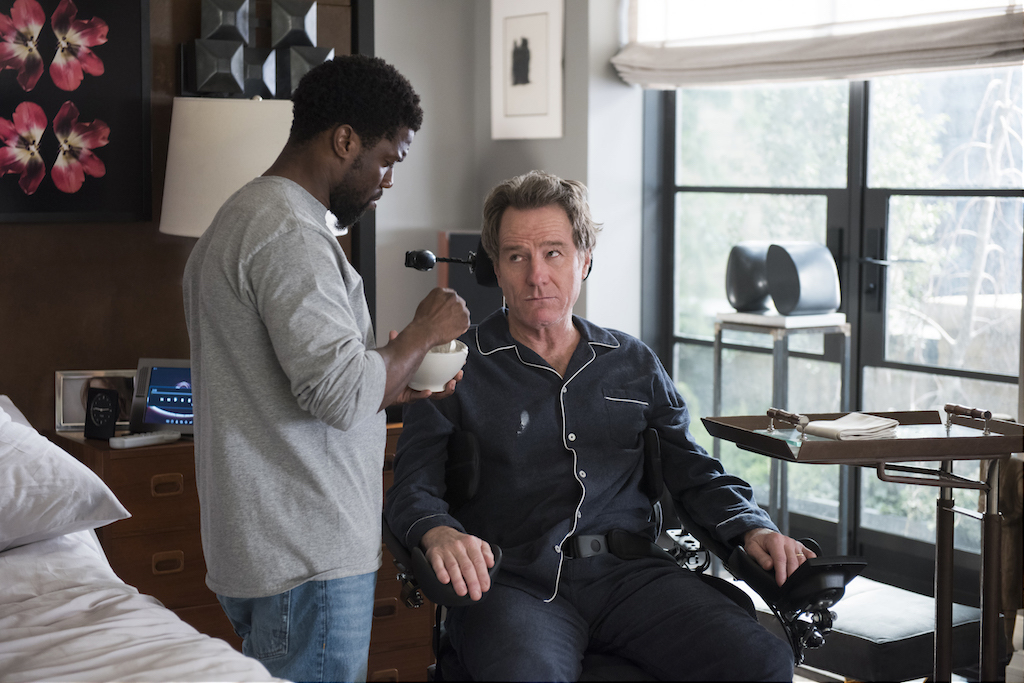
When I saw the French box office hit, The Intouchables, my first thought was, “Huh, so the French can make sentimental junk just like Americans!” It was almost comforting. It also occurred to me, with grim resignation, that the film would be remade in America. Talk about unnecessary. This was already a French imitation of an American-style film—albeit one with that certain je ne sais quoi the French always manage to pull off. So with The Upside, we’re essentially getting an imitation of an imitation.
Suffice it to say, The Upside doesn’t have that certain je ne sais quoi.
The story, which is loosely based on a real friendship between a disabled billionaire and his caregiver, is mostly the same. Bryan Cranston plays Phillip, a widowed investment guru who has recently become a quadriplegic. Kevin Hart is Dell, the ex-con who accidentally stumbles into an interview to become Phillip’s live-in “life auxiliary” and lands the job, partly because he doesn’t coddle Phillip with “handicapable!”-style euphemisms and partly because the depressed Phillip doesn’t actually want to be well-cared for. Nicole Kidman plays Yvonne, who is Phillip’s doting business manager. (I confess I spent much of the film waiting for a reveal that never came that Yvonne was Phillip’s daughter—it made the semi-romantic overtone to their relationship a bit awkward.)
The Upside slavishly follows all the expected tropes. Dell is a loudmouth and a hustler, who is estranged from his good-hearted wife and sensitive young son (he’s trying to win them back and prove he’s no longer a ne’er do well). We see Dell enjoying the fruits of his new employment digs, Pretty Woman-style —fancy cars, a big room, an enormous flat-screen TV. There’s a funny bit with a complicated German shower system. We see him slowly learn to become a better and more compassionate caregiver to Phillip (although that doesn’t stop the film from including a full-on gay panic scene involving the insertion of Phillip’s catheter, doubly unfortunate in light of Hart’s recent Oscars controversy). Dell also teaches Phillip to let his hair down—drive fast, get out more, take romantic risks, smoke weed. Meanwhile, Phillip teaches Dell to enjoy a night at the opera (more shades of Pretty Woman!). That opera scene would’ve been so much funnier, an inversion of the cliché, if Dell had fallen asleep and snored loudly during the performance. Instead, he is transfixed. Because The Upside isn’t about inverting clichés, it’s about embracing them. (Case in point, the opera that Phillip listens to is Greatest Hits stuff—Barber of Seville, La Traviata—not the kind of repertoire a true music snob would prefer.)
The two actors are fine, and have decent chemistry, but the film doesn’t dig deeply enough for us to truly be invested in their relationship. I was honestly never sure if Dell really cared about Phillip, or if he was just trying to keep his job. And dare I say, the film dragged at times? Turns out all those “embrace life!” clichés can get a little dull.
